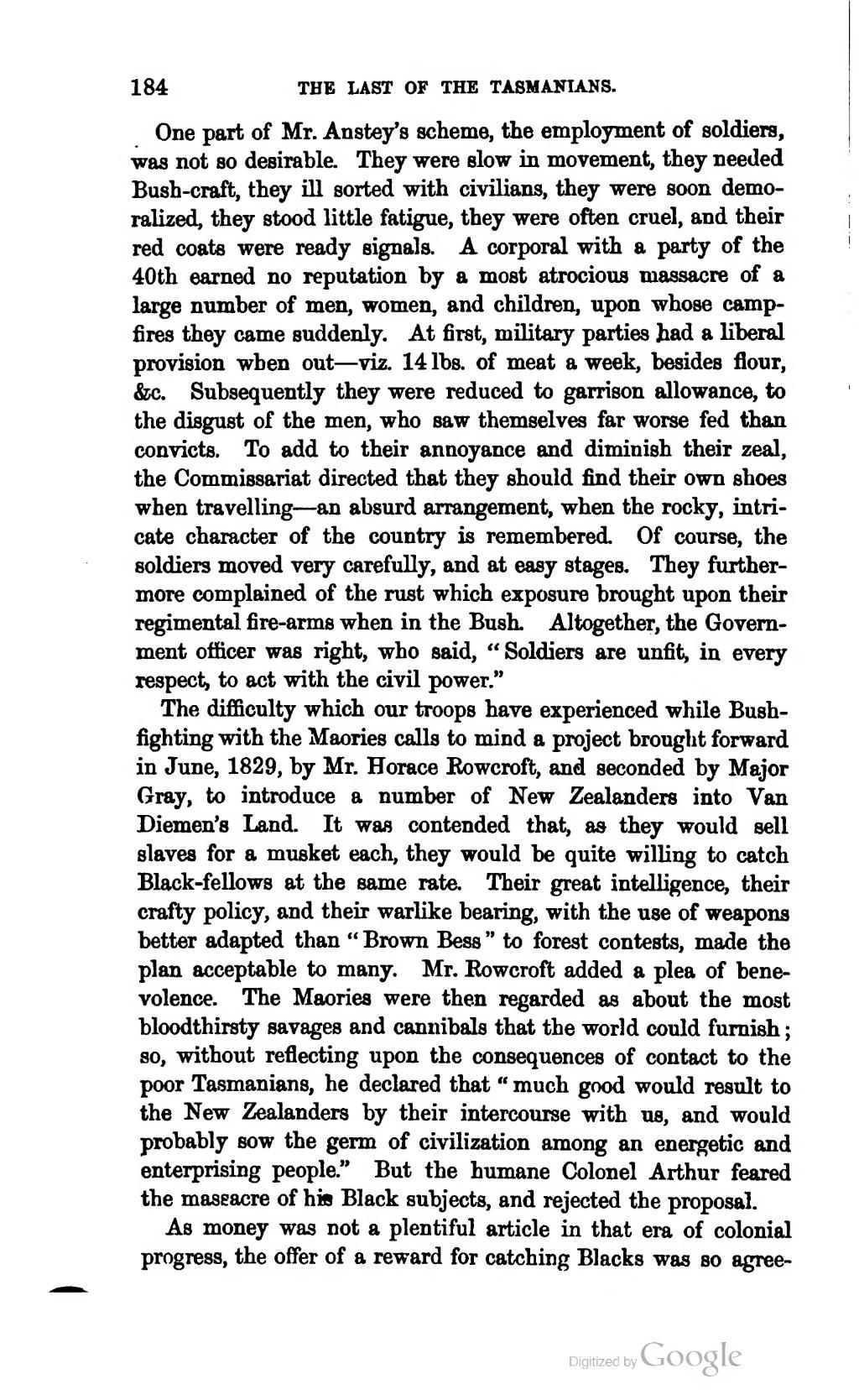One part of Mr. Anstey's scheme, the employment of soldiers, was not so desirable. They were slow in movement, they needed Bush-craft, they ill sorted with civilians, they were soon demoralized, they stood little fatigue, they were often cruel, and their red coats were ready signals. A corporal with a party of the 40th earned no reputation by a most atrocious massacre of a large number of men, women, and children, upon whose camp-fires they came suddenly. At first, military parties had a liberal provision when out—viz. 14 lbs. of meat a week, besides flour, &c. Subsequently they were reduced to garrison allowance, to the disgust of the men, who saw themselves far worse fed than convicts. To add to their annoyance and diminish their zeal, the Commissariat directed that they should find their own shoes when travelling—an absurd arrangement, when the rocky, intricate character of the country is remembered. Of course, the soldiers moved very carefully, and at easy stages. They furthermore complained of the rust which exposure brought upon their regimental fire-arms when in the Bush. Altogether, the Government officer was right, who said, "Soldiers are unfit, in every respect to act with the civil power."
The difficulty which our troops have experienced while Bush-fighting with the Maories calls to mind a project brought forward in June, 1829, by Mr. Horace Rowcroft, and seconded by Major Gray, to introduce a number of New Zealanders into Van Diemen's Land. It was contended that, as they would sell slaves for a musket each, they would be quite willing to catch Black-fellows at the same rate. Their great intelligence, their crafty policy, and their warlike bearing, with the use of weapons better adapted than "Brown Bess" to forest contests, made the plan acceptable to many. Mr. Rowcroft added a plea of benevolence. The Maories were then regarded as about the most bloodthirsty savages and cannibals that the world could furnish; so, without reflecting upon the consequences of contact to the poor Tasmanians, he declared that "much good would result to the New Zealanders by their intercourse with us, and would probably sow the germ of civilization among an energetic and enterprising people." But the humane Colonel Arthur feared the massacre of his Black subjects, and rejected the proposal.
As money was not a plentiful article in that era of colonial progress, the offer of a reward for catching Blacks was so agree-
